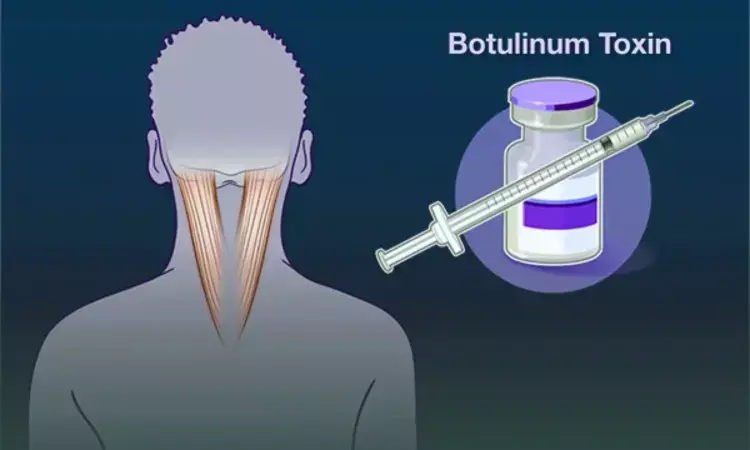- Home
- Medical news & Guidelines
- Anesthesiology
- Cardiology and CTVS
- Critical Care
- Dentistry
- Dermatology
- Diabetes and Endocrinology
- ENT
- Gastroenterology
- Medicine
- Nephrology
- Neurology
- Obstretics-Gynaecology
- Oncology
- Ophthalmology
- Orthopaedics
- Pediatrics-Neonatology
- Psychiatry
- Pulmonology
- Radiology
- Surgery
- Urology
- Laboratory Medicine
- Diet
- Nursing
- Paramedical
- Physiotherapy
- Health news
- Fact Check
- Bone Health Fact Check
- Brain Health Fact Check
- Cancer Related Fact Check
- Child Care Fact Check
- Dental and oral health fact check
- Diabetes and metabolic health fact check
- Diet and Nutrition Fact Check
- Eye and ENT Care Fact Check
- Fitness fact check
- Gut health fact check
- Heart health fact check
- Kidney health fact check
- Medical education fact check
- Men's health fact check
- Respiratory fact check
- Skin and hair care fact check
- Vaccine and Immunization fact check
- Women's health fact check
- AYUSH
- State News
- Andaman and Nicobar Islands
- Andhra Pradesh
- Arunachal Pradesh
- Assam
- Bihar
- Chandigarh
- Chattisgarh
- Dadra and Nagar Haveli
- Daman and Diu
- Delhi
- Goa
- Gujarat
- Haryana
- Himachal Pradesh
- Jammu & Kashmir
- Jharkhand
- Karnataka
- Kerala
- Ladakh
- Lakshadweep
- Madhya Pradesh
- Maharashtra
- Manipur
- Meghalaya
- Mizoram
- Nagaland
- Odisha
- Puducherry
- Punjab
- Rajasthan
- Sikkim
- Tamil Nadu
- Telangana
- Tripura
- Uttar Pradesh
- Uttrakhand
- West Bengal
- Medical Education
- Industry
Botulinum Toxin Shows Promise for Treating Raynaud's Phenomenon in Scleroderma: Study Reveals

UK: A recent systematic review published in Clinical Rheumatology has investigated the potential of botulinum toxin (BTX) as a treatment for Raynaud’s phenomenon (RP) secondary to scleroderma, a chronic autoimmune disease.
Data shows that botulinum toxin injections in the hand significantly reduced pain and disability in patients with Raynaud’s syndrome secondary to scleroderma. The injections notably improved visual analog scale pain scores, Quick-DASH scores, and skin temperature.
Raynaud’s phenomenon is a vasospastic disorder that affects the small blood vessels in the extremities, including the hands, feet, fingers, and toes. This debilitating condition can significantly reduce a patient’s quality of life. While botulinum toxin has been explored as a potential treatment for RP, its effectiveness remains inconclusive. To fill this knowledge gap, Calver Pang, Department of Plastic and Reconstructive Surgery, Royal Free London NHS Foundation Trust, London, UK, and colleagues aimed to conduct a systematic review to assess the current evidence on the use of botulinum toxin as a treatment for Raynaud’s phenomenon secondary to scleroderma.
For this purpose, the researchers systematically searched major clinical databases, including Medline, Embase (via Ovid), the Cochrane Central Library, ClinicalTrials.gov, the EU Clinical Trials Register, and the ISRCTN registry, from their inception until 27 November 2023. The search focused on studies describing botulinum toxin (BTX) and Raynaud’s phenomenon. Standard mean differences in Quick-DASH scores, visual analogue scale pain (VAS-P) scores, and Raynaud’s condition scores (RCS) were calculated using a random-effects model to assess the impact of BTX treatment.
Key Findings:
- A total of 890 entries were retrieved, of which 19 met the inclusion criteria and were included in the analysis.
- There was a significant effect was observed for the Quick-DASH score and VAS-P score.
- There was no significant effect on Raynaud’s condition score (RCS).
The findings showed that Botulinum toxin A (BTX-A) shows promise as a treatment for Raynaud’s phenomenon secondary to scleroderma, addressing a significant issue for affected patients. However, the current evidence is insufficient to establish it as a revolutionary first-line therapy. Ongoing clinical trials, such as the one at Emory University Hospital, are crucial to confirm the role of BTX-A in treating RP.
"This review highlights the variability in study methodologies, which impairs data evaluation. While patient-reported outcomes are valuable, they can be subjective and difficult to standardize, making comparisons across studies challenging. To advance BTX-A in RP, developing core outcome sets and standardizing techniques is essential for future research," the researchers wrote.
The authors added that a key limitation of most studies was the lack of a control group, preventing direct comparisons. Additionally, the follow-up periods were often limited to a few months, making it difficult to assess the long-term effects of botulinum toxin. The studies also varied in their BTX dosing, with none examining dose titration to optimize treatment. Furthermore, the differing injection points across studies hindered the determination of an ideal injection approach.
"Despite these limitations, the findings from this systematic review support the efficacy and safety of BTX for treating Raynaud’s phenomenon secondary to scleroderma," they concluded.
Reference:
Pang, C., Iakovou, D., Fraser, D. et al. A systematic review of botulinum toxin as a treatment for Raynaud’s disease secondary to scleroderma. Clin Rheumatol (2024). https://doi.org/10.1007/s10067-024-07237-3
Dr Kamal Kant Kohli-MBBS, DTCD- a chest specialist with more than 30 years of practice and a flair for writing clinical articles, Dr Kamal Kant Kohli joined Medical Dialogues as a Chief Editor of Medical News. Besides writing articles, as an editor, he proofreads and verifies all the medical content published on Medical Dialogues including those coming from journals, studies,medical conferences,guidelines etc. Email: drkohli@medicaldialogues.in. Contact no. 011-43720751


